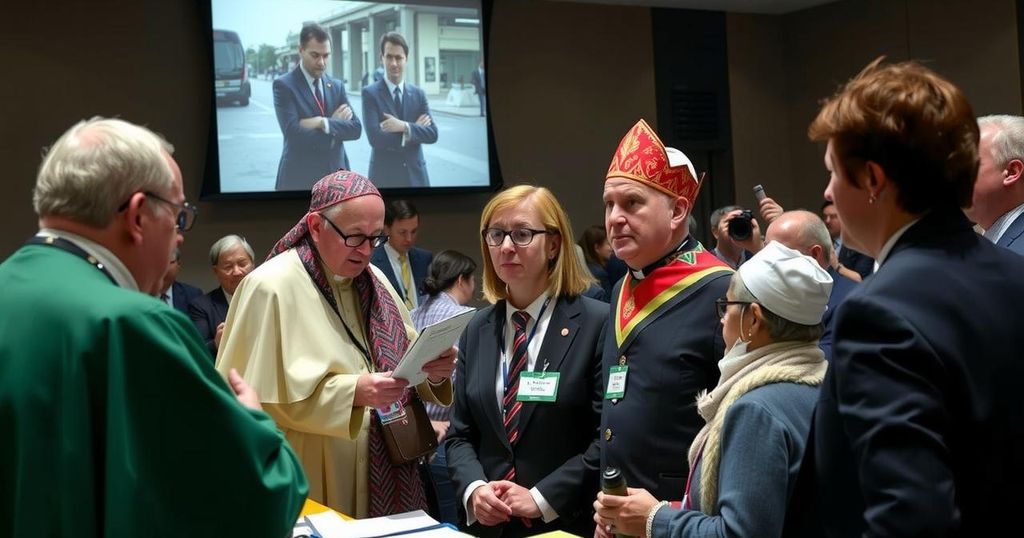The Vatican has obstructed discussions on women’s rights at COP29 due to disagreements over LGBTQ+ issues. Their alliance with countries like Saudi Arabia and Russia has stalled crucial negotiations, despite women’s disproportionate hardships from climate change. Activists and negotiators are concerned that failure to reach an agreement will hinder support for women facing these challenges, emphasizing a broader global backlash against gender rights.
The Vatican has recently obstructed discussions on women’s rights during COP29 due to disagreements surrounding gay and transgender issues. Aligned with countries such as Saudi Arabia, Russia, Egypt, and Iran, they have hindered progress on a deal offering vital support for women affected by climate change, according to Colombia’s environment minister. Charities stress the importance of addressing women’s experiences, as they disproportionately bear the brunt of climate crises, constituting 80% of those displaced by climate change. This conflict over the term ‘gender’ has stalled pivotal negotiations, raising significant concerns about the future of global initiatives aimed at supporting women in climate-affected regions.
The ongoing COP29 climate summit aims to renew the ten-year-old Lima Work Programme on Gender, focused on integrating women’s experiences into climate change strategies. However, the Vatican and its allies are resisting mentions of ‘gender,’ fearing that it may encompass transgender women and LGBTQ+ rights, which they oppose. Activists and negotiators have expressed disappointment over this backlash, as the absence of a clear agreement might lead to a lack of support for women facing climate-related challenges. This situation highlights the broader struggles for women’s rights and LGBTQ+ recognition in current global dialogues.
The discussions at COP29 have highlighted the intersection of climate change and gender rights, particularly regarding how women are uniquely affected by environmental crises. Acknowledging that women face significant challenges, primarily due to their traditional roles and the exacerbation of vulnerabilities during climate disasters, the international community has recognized the urgent need for targeted support. However, the backlash from certain countries against inclusive language and recognition of diverse gender identities underscores a significant barrier to ensuring that climate policies consider all women’s experiences holistically, thereby threatening advancements made over the last decade.
The ongoing tensions at COP29 reflect a troubling trend in the global dialogue concerning women’s rights amidst climate change. The Vatican and other nations’ resistance to inclusive terminology can derail critical support mechanisms for marginalized groups affected by climate crises. Without a collective commitment to empower women and address the disparities they face, the proposed initiatives may ultimately be incomplete and ineffective, jeopardizing years of progress in international gender-focused climate policy.
Original Source: www.bbc.com






